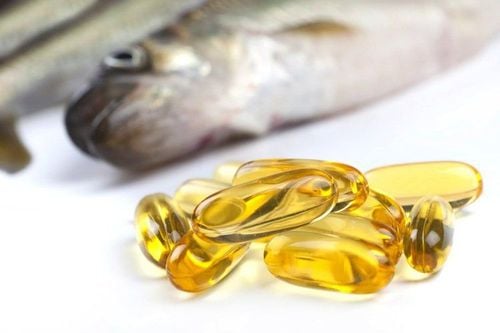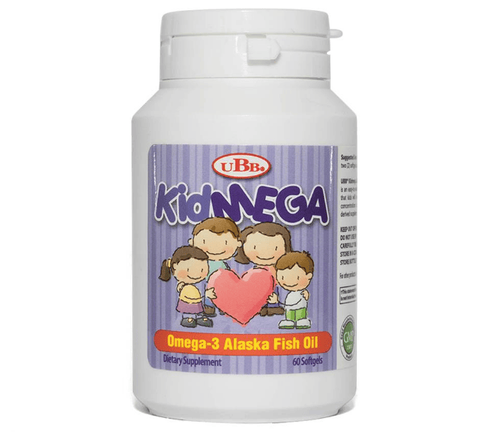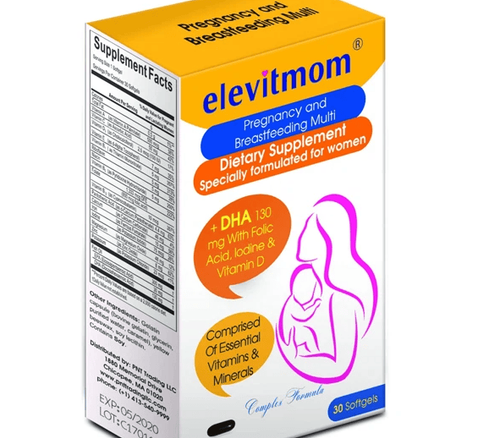This is an automatically translated article.
Docosahexaenoic acid (DHA) is an omega-3 fatty acid that is essential for brain development during pregnancy and childhood. It's also been linked to improved heart health, better vision, and a reduced inflammatory response. DHA is naturally produced in small amounts by the body, but to achieve adequate amounts, DHA needs to be obtained through dietary sources such as fish, red meat, dairy, or eggs rich in omega-3s. . It is also available as a supplement, such as fish oil. This article will provide information on 12 health benefits of DHA.1. What is DHA?
Docosahexaenoic acid, also known as DHA for short, is a type of fat that belongs to the group of omega-3 fats. Like eicosapentaenoic acid (EPA), DHA is abundant in oily fish as well as the flesh of fatty fish, such as salmon and anchovies.The body can only make small amounts of DHA from other fatty acids, so to ensure you are always getting the right amount of DHA, you need to get them directly from DHA-rich food sources.
Along with EPA, DHA can help fight inflammation and reduce the risk of some chronic diseases such as cardiovascular diseases, diabetes .... DHA itself is also an important nutrient. in brain as well as eye health.

DHA chứa rất nhiều trong dầu cá cũng như thịt của các loại cá
2. Health Benefits of DHA
2.1. Reduce the risk of cardiovascular diseases
Omega-3 fats in general and DHA in particular are often recommended to protect cardiovascular health. However, most studies show that DHA is most effective only when combined with EPA, where these studies have shown that DHA is actually more effective than EPA in improving health. heart health.In a study in 154 obese adults supplemented with 2,700 mg DHA daily for 10 weeks showed a significant improvement in the overall blood omega-3 fatty acid index. Omega-3 fatty acids in the blood play an important role, helping to reduce the risk of stroke in study subjects by about 5.6%. The same thing happened when subjects were supplemented with EPA instead of DHA, but the increase in omega-3 fatty acid levels was only 3.3%, much lower than that of DHA supplementation.
DHA also reduced blood triglyceride levels more than EPA (13.3% vs 11.9%) and increased good cholesterol (HDL cholesterol) by 7.6% compared with a slight increase in EPA. Notably, DHA tends to raise levels of harmful cholesterol (LDL cholesterol) but mainly the large, fine cholesterol particles, unlike the small, dense cholesterol particles, which are responsible for the increased risk of these diseases. heart-related diseaes.
2.2. Improve the condition of attention deficit hyperactivity disorder syndrome
Attention-deficit hyperactivity disorder (ADHD) is characterized by impulsive and difficult-to-focus behaviors, which usually appear in childhood and continue to develop into adulthood. DHA is the main component of the omega-3 fatty acid group found in the brain. DHA helps increase blood flow to the brain thereby increasing focus on the tasks that need to be done. Studies have shown that children and adults with ADHD often have lower blood levels of DHA.In a recent review involving testing the effects of DHA supplementation in children with attention deficit hyperactivity disorder showed many positive improvements. Children who took 600 mg of DHA per day experienced an 8% reduction in impulsive behaviors as assessed by parents. Another 16-week study in 40 boys with ADHD found that taking 650 mg of DHA and EPA in combination with other ADHD medications resulted in a 15% increase in children's attention span compared to a placebo group. medicine.
2.3. Reduce the risk of preterm birth
Giving birth before 34 weeks of pregnancy is called preterm and increases your baby's risk of health problems.One study found that women who consumed about 600-800 mg of DHA per day during pregnancy had a 64% lower risk of preterm birth compared with women who did not get enough DHA. These results indicate that adequate DHA intake, especially during pregnancy, should be ensured through diet or direct supplementation. On average, each mother during pregnancy should eat at least 226 grams of fatty fish rich in omega-3 per week.

DHA giúp giảm nguy cơ sinh non
2.4. Effective anti-inflammatory
Omega-3 fats in general and DHA in particular have effective anti-inflammatory effects. The content of omega-3 fats helps to balance the amount of omega-6 fats produced - one of the factors that form inflammatory foci.DHA's anti-inflammatory properties may reduce the risk of several chronic diseases, especially age-related diseases such as cardiovascular diseases or gum diseases as well as autoimmune diseases such as rheumatoid arthritis .
2.5. Supports muscle recovery after exercise
Exercising during exercise can lead to inflammation and soreness in the muscles. DHA, especially if combined with EPA, can reduce muscle soreness and limit range of motion after exercise because of its anti-inflammatory properties.In a study of 27 women supplemented with 3,000 mg of DHA daily for one week showed a 23% reduction in muscle soreness after performing biceps curls. The same thing happened for men when muscle soreness was reduced by 17% compared to the placebo group.
2.6. Improve eyesight
There aren't any studies yet to prove whether DHA and other omega-3 fats help reduce age-related macular degeneration, but one thing is for sure, DHA can improve age-related macular degeneration. dry eye and retinal diseases as a complication of diabetes. What's more, recent studies show that DHA can reduce eye discomfort when wearing contact lenses and reduce the risk of glaucoma.In a 12-week study in contact lens wearers, 600 mg of DHA and 900 mg of EPA daily improved eye discomfort by 42% - similar to the improvements studied for medication corticosteroid eye drops.

DHA có thể làm giảm sự khó chịu của mắt khi phải đeo kính áp tròng
2.7. Reduced risk of certain types of cancer
Chronic inflammation is one of the factors that contribute to cancer. High amounts of omega-3 fats and especially DHA have anti-inflammatory properties that reduce the risk of several types of cancer including colorectal cancer, pancreatic cancer, breast cancer, and prostate cancer. in men.On the cellular side, DHA inhibits the growth of cancer cells, improving the effectiveness of cancer treatment by chemotherapy.
2.8. Prevent or slow the progression of Alzheimer's disease
As mentioned, DHA is the main omega-3 fatty acid in the brain, ensuring the normal functioning of the brain as well as the nervous system. Many studies have shown that people with Alzheimer's disease have lower levels of DHA in their brains than normal.However, a lot of scientific evidence shows that supplementing with DHA and other omega-3 fatty acids is most effective before brain function is impaired, which means that DHA can only help prevent disease. Alzheimer's disease is not completely curable.
2.9. Lowers blood pressure and aids blood circulation
DHA supports blood circulation and improves endothelial function as well as the elasticity of blood vessels very well. A review of 20 studies found that DHA and EPA help lower blood pressure readings in different ways. While DHA reduced diastolic blood pressure by an average of 3.1 mmHg, EPA reduced systolic blood pressure by 3.8 mmHg.The reduction in blood pressure readings also reduces the risk of cardiovascular disease as well as stroke.
2.10. Effects on babies
DHA is especially necessary for the brain and vision development of children. These organs develop very rapidly during the last three months of pregnancy as well as the first few years of a baby's life. Therefore, it is important for pregnant and lactating women to supplement with adequate levels of DHA, not only for the mother but also for the baby.In a study of 82 infants, prenatal mothers' DHA levels were strongly associated with one-year-old's problem-solving abilities, which suggests a link between DHA levels in mothers and problem solving in children.
2.11. Improve male reproductive health
Nearly 50% of infertility cases are related to male health, and omega-3 fatty acids have been shown to affect sperm health.In fact, low DHA levels are a common cause of reduced sperm quality, leading to infertility.
2.12. Protect mental health
According to a report by the Centers for Disease Control, up to 20% of Americans are living with mild depression and 2-7% have major depression. DHA and EPA levels are implicated in this regard.In a study of 22,000 adults in Norway who consumed at least 300-600 mg of DHA and EPA from cod, it was found that the incidence of depression was about 30% lower than in those who did not. enough omega-3 fatty acids.
Besides, DHA and EPA support serotonin, a neurotransmitter that helps improve mood. In addition, the anti-inflammatory effect of DHA on nerve cells is also responsible for reducing the risk of depression.
DHA is an omega-3 fat that is recommended to be consumed from food, supplements or both because the body can only produce a small amount of DHA on its own. DHA helps prevent and improve a number of chronic diseases such as cardiovascular disease, cancer, Alzheimer's disease, depression.... DHA is also essential for male reproductive health and infant development. born. For children, DHA helps reduce symptoms of ADHD. Scientists recommend getting about 200-500 mg of DHA as well as EPA per day from foods, supplements, or both.
Vinmec International General Hospital is a high-quality medical facility in Vietnam with a team of highly qualified medical professionals, well-trained, domestic and foreign, and experienced.
A system of modern and advanced medical equipment, possessing many of the best machines in the world, helping to detect many difficult and dangerous diseases in a short time, supporting the diagnosis and treatment of doctors the most effective. The hospital space is designed according to 5-star hotel standards, giving patients comfort, friendliness and peace of mind.
Please dial HOTLINE for more information or register for an appointment HERE. Download MyVinmec app to make appointments faster and to manage your bookings easily.
Reference sources: healthline.com, verywellmind.com












